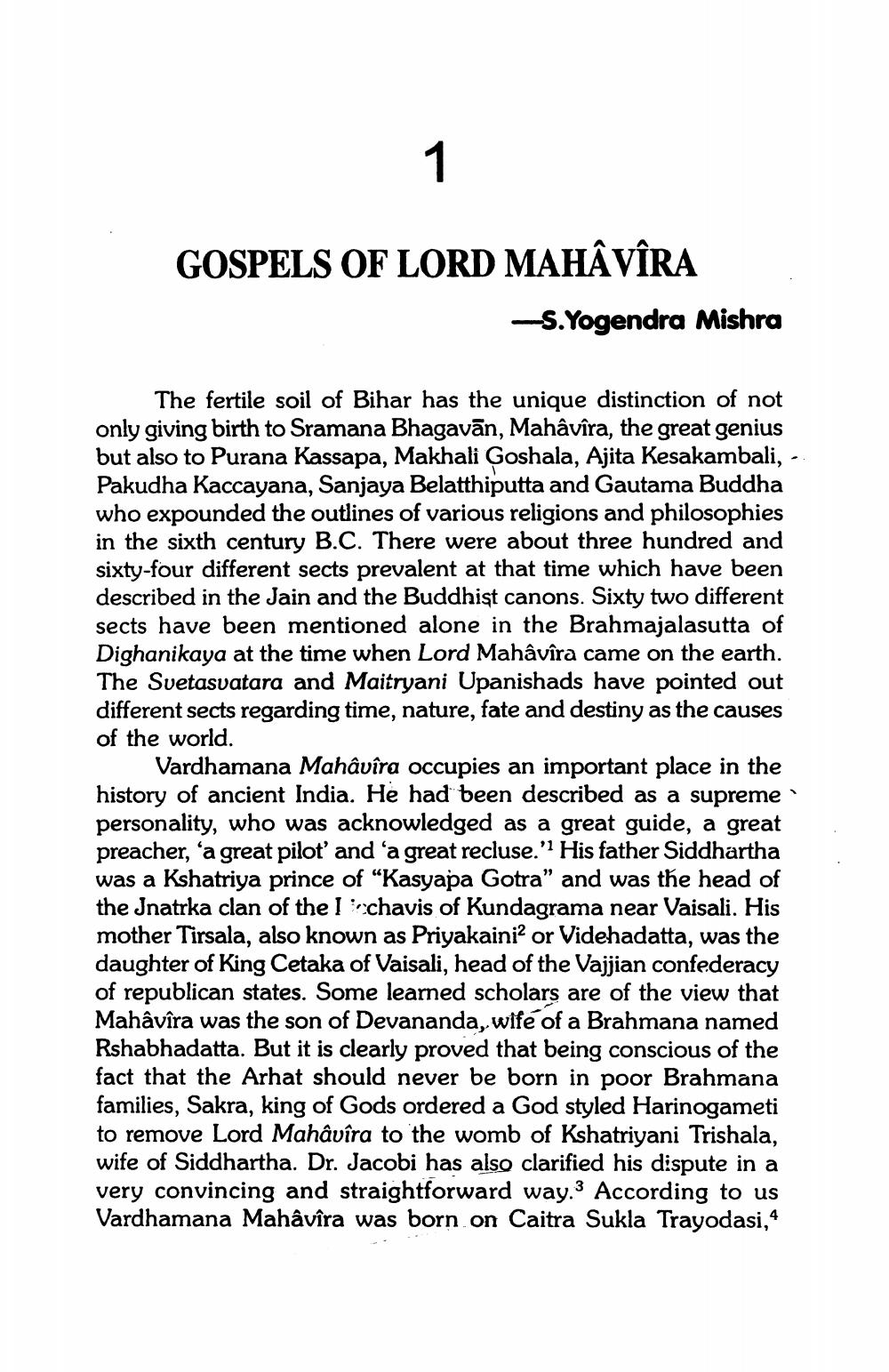________________
1
GOSPELS OF LORD MAHÂVÎRA
-S.Yogendra Mishra
The fertile soil of Bihar has the unique distinction of not only giving birth to Sramana Bhagavān, Mahâvîra, the great genius but also to Purana Kassapa, Makhali Goshala, Ajita Kesakambali, - Pakudha Kaccayana, Sanjaya Belatthiputta and Gautama Buddha who expounded the outlines of various religions and philosophies in the sixth century B.C. There were about three hundred and sixty-four different sects prevalent at that time which have been described in the Jain and the Buddhist canons. Sixty two different sects have been mentioned alone in the Brahmajalasutta of Dighanikaya at the time when Lord Mahâvîra came on the earth. The Svetasvatara and Maitryani Upanishads have pointed out different sects regarding time, nature, fate and destiny as the causes of the world.
Vardhamana Mahâvîra occupies an important place in the history of ancient India. He had been described as a supreme personality, who was acknowledged as a great guide, a great preacher, 'a great pilot' and 'a great recluse." His father Siddhartha was a Kshatriya prince of "Kasyapa Gotra" and was the head of the Jnatrka clan of the I chavis of Kundagrama near Vaisali. His mother Tirsala, also known as Priyakaini2 or Videhadatta, was the daughter of King Cetaka of Vaisali, head of the Vajjian confederacy of republican states. Some learned scholars are of the view that Mahâvîra was the son of Devananda, wife of a Brahmana named Rshabhadatta. But it is clearly proved that being conscious of the fact that the Arhat should never be born in poor Brahmana families, Sakra, king of Gods ordered a God styled Harinogameti to remove Lord Mahâvîra to the womb of Kshatriyani Trishala, wife of Siddhartha. Dr. Jacobi has also clarified his dispute in a very convincing and straightforward way.3 According to us Vardhamana Mahâvîra was born on Caitra Sukla Trayodasi,4




